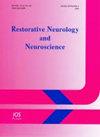以患者为中心的急性心肌梗死患者护理:哪些可以改善疾病管理
IF 1.6
4区 医学
Q4 NEUROSCIENCES
引用次数: 0
摘要
导论:心血管疾病是由于不适当的生活方式或不健康的生活方式而影响心血管系统的一组疾病,它们的危险性是一致的,可以通过适当的疾病管理因素加以改变。目的:评价急性心肌梗死患者对该心脏病及其相关危险因素的认识。此外,确定可以改善以控制疾病的风险因素。设计:观察性和前瞻性研究。方法:调查在某中心医院的心脏重症监护病房进行,纳入所有住院两个月的患者。本文对19例临床诊断为急性心肌梗死的患者进行了研究。结果:对问卷的分析表明,方法的主题具有合理和合理的相关性。可改变的危险因素的高流行率突出了对不可改变的危险因素患者进行干预的必要性。结论:急性心肌梗死患者对疾病及相关因素缺乏正确认识。急性心肌梗死患者中存在的许多危险因素可能通过适当的疾病管理和以患者为中心的护理来改变。本文章由计算机程序翻译,如有差异,请以英文原文为准。
The patient-centered care for patients with acute myocardial infarction: what can be improved the disease management
Introduction: Cardiovascular diseases are presented as a set of diseases that affect the cardiovascular system because of inappropriate lifestyles or unhealthy, they are consistent in risk might be modifiable through a proper disease management factor. Aim: Assess the perceptions of patients with acute myocardial infarction about this heart disease and risk factors associated. Also, identify the risk factors that can be improved to manage the disease. Design: Observational and prospective study. Methods: The survey was conducted in a Cardiac Intensive Care Unit of a Central Hospital, with inclusion of all patients admitted on a period of two months. Nineteen patients were studied with a clinical diagnosis of Acute Myocardial Infarction. Results: The analysis of the questionnaires showed that, approach the subject has a justified and reasoned relevance. The high prevalence of risk factors that can be modified highlighted the need for intervention in patients with non-modifiable risk factors. Conclusion: Patients with acute myocardial infarction do not have a correct perception of the disease and associated factors. Many of the risk factors present in patients with acute myocardial infarction are likely to be modified by an appropriate disease management, with a patient-centred care.
求助全文
通过发布文献求助,成功后即可免费获取论文全文。
去求助
来源期刊
CiteScore
5.40
自引率
3.60%
发文量
22
审稿时长
>12 weeks
期刊介绍:
This interdisciplinary journal publishes papers relating to the plasticity and response of the nervous system to accidental or experimental injuries and their interventions, transplantation, neurodegenerative disorders and experimental strategies to improve regeneration or functional recovery and rehabilitation. Experimental and clinical research papers adopting fresh conceptual approaches are encouraged. The overriding criteria for publication are novelty, significant experimental or clinical relevance and interest to a multidisciplinary audience. Experiments on un-anesthetized animals should conform with the standards for the use of laboratory animals as established by the Institute of Laboratory Animal Resources, US National Academy of Sciences. Experiments in which paralytic agents are used must be justified. Patient identity should be concealed. All manuscripts are sent out for blind peer review to editorial board members or outside reviewers. Restorative Neurology and Neuroscience is a member of Neuroscience Peer Review Consortium.

 求助内容:
求助内容: 应助结果提醒方式:
应助结果提醒方式:


